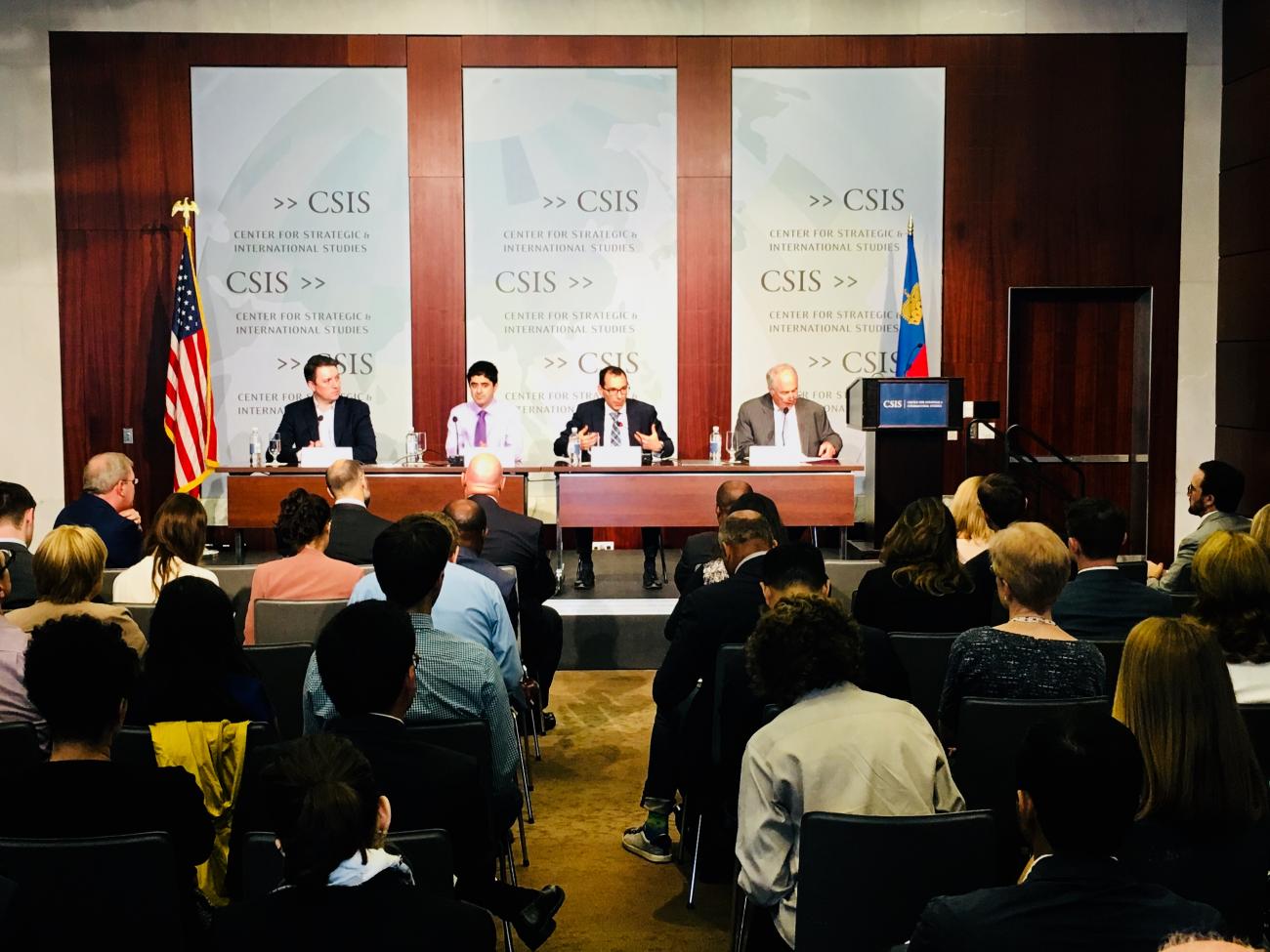Friday, September 28, 2018
On September 12 the Embassy of Liechtenstein and Center for Strategic and International Studies (CSIS) held a panel discussion on the future regulatory challenges of blockchain technology. The discussion was moderated by William Reinsch, Senior Adviser and Scholl Chair in International Business at CSIS. The panel included Mr. Patrick Bont, Executive Board Member, Head of Banking Division at the Liechtenstein Financial Market Authority; Mr. Matthew Welling, Associate, Crowell & Morning LLP; and Mr. Daniel Gorfine, Director of the Lab CFTC and Chief Innovation Officer of the US Commodity Futures Trading Commission.

As reported earlier in 2018, Liechtenstein's Prime Minister Adrian Hasler has set out to position his country to become not only a destination for blockchain start-up companies, but to also make Liechtenstein a leader in setting a regulatory and legal framework for blockchain technology to prevent abuses, while also offering consumer protections. Over the summer Hasler introduced legislation which is currently under parliamentary consultation with an aim to have the law passed by mid-2019.
Blockchain stands for a type of data structure that allows a transaction to be identified and tracked digitally and to share this information across a distributed network of authorized users. This form of distributed ledger technology provides a transparent and secure means for tracking the ownership and transfer of assets. Each “block” of a cryptographic blockchain data displays all relevant information about user actions related to the data. Cryptography is used to create a distributed trust network wherein each participant on the network can make changes to the digital ledger of transactions in a secure manner and without requiring the intervention of a central authority. Owing to its decentralized and encrypted nature, blockchain data cannot be misrepresented or hacked.
Applications for blockchain are limitless with the potential to play an innovative role in supply chains and distribution of products from foods to manufactured goods, services, as well as the collection and archiving of data. However, with a variety of systems emerging, the challenge for regulators lies in defining clear scopes and terminologies. Liechtenstein's proposed blockchain legislation, for example, seeks to clarify the concept of tokens, among other things. A token is defined as a "container" for different things - a right to have access to a particular good. The buying and selling of tokens as they relate to goods and services is just one aspect of the use of blockchain technologies. Another aim of the blockchain legislation is to reduce risks for abuse by requiring Know Your Customer (KYC) and Anti-Money Laundering (AML) regulations, which already exist in the financial services industry. In addition, as Liechtenstein is a member of the European Economic Area, it is bound by the European Union regulatory framework in the field of financial services and the proposed law must also satisfy EU standards.
Daniel Gorfine of the US Commodity Futures Trading Commission (CFTC) explained that his agency has launched an initiative focusing on a number of issues, such as public-private partnerships for the CFTC to engage with innovators in the realms of blockchain and other emerging financial technologies. The CFTC is also focusing on ways to encourage competition as well as raise awareness and education among domestic and international regulators. The aim is to enhance financial technology innovations and to ensure that the CFTC has the right regulatory tools to keep up with an ever-changing industry.
While Mr. Bont and Mr. Gorfine focused on the regulatory side of blockchain, Mr. Welling gave insight into the concerns of private sector stakeholders. He explained that he is in many ways currently focused on educating clients about blockchain and the current market environment. Will blockchain technology be able to add value to a company compared to traditional business models? How should the regulatory framework be shaped to offer boundaries and protections but not impede innovation? What institutions will be the central authorities?
Many see blockchain as playing a significant role in future business undertakings, the panelists stressed that regulatory frameworks have to keep up with technological changes. This will ensure secure access for market participants and preventive measures to combat abuse. In addition, governments must be able to not only focus on domestic approaches to regulating blockchain, but also work towards harmonizing their laws so that they are compatible with global and multilateral frameworks so as to not impede international commerce.
An archived video of the discussion can be viewed here:
